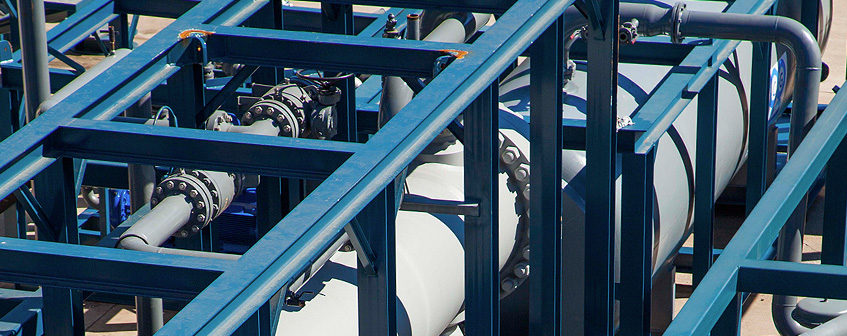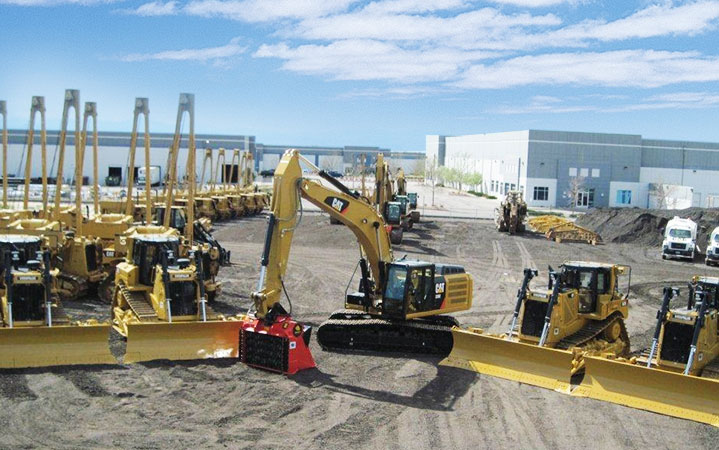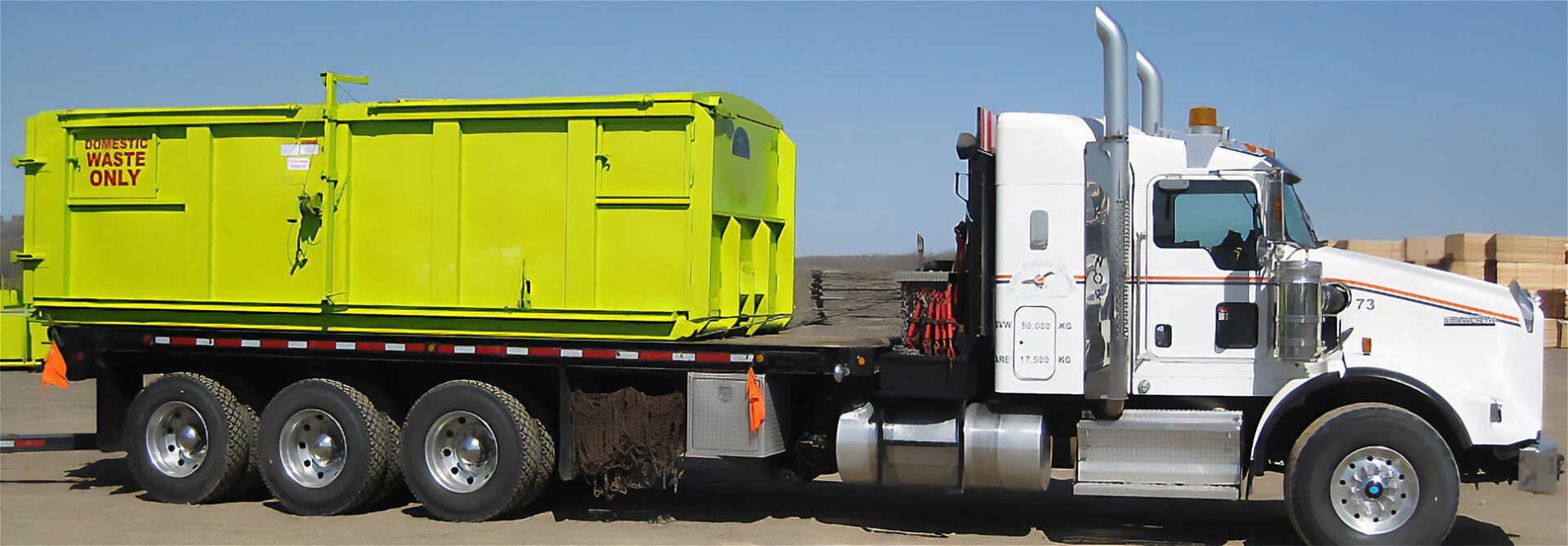Superior Oilfield Rentals oilfield: new solutions shaping production work
A Comprehensive Overview to the Different Kinds Of Oil Field Equipment and Pipeline Equipment Available
The oil and gas market depends heavily on customized devices for efficient removal and transportation. Numerous sorts of equipment, from piercing rigs to storage tanks, play crucial roles in this complex procedure. Each tool serves distinct features that contribute to overall functional success. Recognizing these parts is essential for any person involved in the sector. As the industry progresses, so also do the modern technologies that sustain it. What improvements are on the perspective?

Drilling Rigs: The Backbone of Oil Exploration
Drilling rigs serve as the vital machinery in the domain name of oil exploration, enabling business to gain access to hydrocarbon gets hidden deep below the Planet's surface area. These rigs can be found in various types, including land rigs, offshore rigs, and mobile units, each created to run in specific settings. Furnished with sophisticated innovation, drilling rigs can pass through geological formations with precision, ensuring effective source extraction. The architectural integrity and functional abilities of these rigs are critical, as they need to stand up to severe conditions and substantial pressures. The option of a boring gear affects the general task price and timeline, making it an important factor to consider for oil firms seeking to optimize their exploration efforts and take full advantage of productivity in their operations.
Pumps: Crucial for Fluid Motion
In the oil removal procedure, the duty of pumps is substantial, promoting the motion of fluids throughout numerous phases of production. Pumps are crucial for moving crude oil, water, and other fluids from below ground reservoirs to the surface and after that through pipes to refineries. They can be found in various types, consisting of centrifugal, favorable variation, and submersible pumps, each offering specific objectives based on the liquid attributes and operational requirements. Centrifugal pumps are frequently used for their effectiveness in high-flow applications, while favorable variation pumps stand out in taking care of thick fluids. The selection of pump impacts general efficiency, functional safety and security, and upkeep costs. Proper selection and upkeep of pumps are essential for maximizing manufacturing and lessening downtime in oil field operations.
Shutoffs: Managing Flow and Pressure

Shutoffs play an important role in handling the circulation and pressure of liquids within oil areas and pipes. Various types of valves offer distinctive applications, each created to fulfill details functions fundamental for effective procedure - Superior Oilfield pipeline equipment rentals. Comprehending the attributes and usages of these shutoffs is vital for maximizing system efficiency and security
Kinds of Valves
Vital elements in oil field procedures, valves play a vital duty in regulating the flow and pressure of liquids within pipelines and devices. Various kinds of shutoffs are utilized to satisfy the varied needs of oil and gas production. Typical kinds include gateway shutoffs, which provide a straight-line flow and very little pressure decline; world shutoffs, understood for their strangling capabilities; and round shutoffs, acknowledged for their fast on/off control. Furthermore, check shutoffs stop backflow, while butterfly valves use a lightweight service for regulating circulation. Each valve type is made with certain materials and configurations to endure the harsh problems usually found in oil areas, making certain dependability and performance in procedures. Understanding these kinds is crucial for reliable system management.
Valve Applications and Functions
While different sorts of valves serve distinct functions, their key applications focus on managing flow and stress within oil and gas systems. Valves such as entrance, globe, and round valves regulate fluid activity, ensuring peak performance and safety. Gate valves are frequently utilized for on/off control, giving minimal flow resistance. World shutoffs, on the other hand, deal precise flow policy, making them suitable for throttling applications. Sphere valves are preferred for their fast operation and tight securing capabilities. On top of that, pressure safety valve are important for preventing system overpressure, securing tools integrity. Overall, the ideal selection and application of shutoffs boost operational performance, making sure the reputable transportation of oil and gas through pipes and handling centers.
Compressors: Enhancing Gas Transport
Compressors play an important role in the effective transportation of gas, making certain that it relocates smoothly through pipes over long distances. These gadgets increase the stress of gas, allowing it to overcome friction and elevation changes within the pipeline system. Furthermore, compressors facilitate the balancing of supply and demand, accommodating variations in consumption and production prices. Numerous kinds of compressors are employed in the market, including centrifugal, reciprocating, and rotary screw compressors, each offering unique advantages based upon the functional needs. Regular upkeep of these compressors is necessary to make best use of effectiveness and lessen downtime, eventually adding to a trusted gas transport network. Their important feature emphasizes the value of compressors in the general oil and gas facilities.
Storage Tanks: Safe and Efficient Liquid Management
Reliable transportation of all-natural gas relies upon numerous sustaining systems, one of which is the appropriate management of tank. These tanks play a crucial duty in safely containing fluids, ensuring that operational efficiency is maintained while minimizing environmental dangers. Constructed from resilient materials, they are made to hold up against high pressures and harsh components. Correctly sized and purposefully situated, storage tanks promote the smooth flow of gas and various other fluids, stopping bottlenecks in supply chains. Regular maintenance and surveillance are vital to spot leaks or structural concerns, advertising safety and security and compliance with regulatory criteria. Eventually, the effective monitoring of tank is vital for the overall stability and integrity of the oil and gas sector's liquid handling systems.
Pipeline Solutions: Framework for Transport
Pipeline systems function as the foundation of the oil and gas market, promoting the effective transport of hydrocarbons over vast ranges. These systems contain numerous parts, including pipelines, shutoffs, pumps, and compressors, all meticulously developed to ensure seamless circulation. The materials used in pipeline construction, commonly steel or high-density polyethylene, are picked for durability and resistance to rust. Pipeline networks can extend across land and water, attaching production websites to Superior Oilfield pipeline equipment rentals refineries and circulation facilities. Furthermore, progressed technology allows real-time monitoring of flow rates and pressure levels, improving operational effectiveness. The tactical placement of these pipes lessens ecological influence while optimizing resource access, consequently playing a vital duty in meeting energy needs around the world.
Security Equipment: Making Certain Employee and Environmental Management
The procedure of pipeline systems, while important for power transportation, additionally presents considerable safety obstacles for workers and the setting. Safety and security tools plays a considerable function in mitigating these risks. Individual protective equipment (PPE) such as headgears, gloves, and non-slip shoes safeguards employees from physical risks. Furthermore, gas discovery systems keep track of for leakages, making sure that dangerous substances do not present a hazard to workers or the surrounding ecological community. Emergency closure systems are imperative for swiftly stopping procedures during a situation, preventing prospective disasters. Spill control products, consisting of absorbents and barriers, are fundamental for lessening ecological effect. In general, spending in all-encompassing safety equipment is important for maintaining functional honesty and securing both workers and the environment in the oil and gas market.

Often Asked Inquiries
Just how Do I Select the Right Oil Field Equipment for My Job?
Selecting the best oil area devices includes examining job specs, budget constraints, and operational requirements. Think about elements such as devices reliability, compatibility with existing systems, and the supplier's track record to guarantee peak efficiency and safety.
What Are the Upkeep Demands for Oil Field Equipment?
Upkeep requirements for oil area tools consist of regular inspections, lubrication, and timely fixings. Operators must additionally comply with maker standards, display performance metrics, and warranty compliance with security regulations to enhance durability and effectiveness.

How Can I Make Certain Compliance With Environmental Laws?
To guarantee compliance with environmental laws, companies have to carry out routine audits, carry out ideal techniques, purchase training, preserve proper documents, and remain updated on regulations (Superior Rentals near me). Partnership with environmental agencies can also improve adherence to regulations
What Is the Average Lifespan of Pipeline Equipment?
The ordinary lifespan of pipeline equipment typically ranges from 20 to half a century, depending upon elements such as material quality, environmental conditions, and upkeep practices. Normal assessments can considerably influence long life and operational efficiency.
Exactly how Do I Safely Carry Oil Field Equipment to Remote Locations?
Carrying oil field tools to remote places calls for mindful planning, including route evaluation, protecting licenses, utilizing suitable automobiles, and making certain safety and security protocols are complied with. Appropriate training and interaction amongst teams are crucial for effective transport.